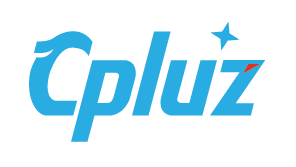**Title:**
`What are the Security Considerations in Web Hosting? A Comprehensive Guide by Cpluz`
**Meta Description:**
`Discover the Security Considerations in Web Hosting and protect your online presence with Cpluz. Learn about SSL certificates, data backups, malware protection, and more. Contact us today at info@cpluz.com.`
**Introduction**
Welcome to Cpluz, a trusted partner for businesses since 1993. Our expertise extends beyond logo design, graphic design, and digital printing to include web hosting services. In this article, we delve into the essential security considerations in web hosting. By understanding these aspects, you can safeguard your online presence and build positive connections between your brand and human emotion.
**Heading 1: SSL Certificates and Encryption**
**Subheading 1.1: What is SSL?**
Secure Sockets Layer (SSL) is a security protocol that encrypts information sent between a web server and a browser. It ensures that your data, such as credit card information and personal details, is protected from cyber attacks.
**Subheading 1.2: Why is SSL Important?**
An SSL certificate is crucial for building trust with your customers. Browsers display a padlock icon and ‘https’ in the URL bar when an SSL certificate is present, signaling that the website is secure.
**Heading 2: Data Backups**
**Subheading 2.1: Importance of Regular Backups**
Regular data backups are essential for recovering your website in case of a security breach or server crash. They prevent loss of valuable data and downtime.
**Subheading 2.2: Automated Backup Solutions**
An automated backup solution ensures that your website data is regularly and automatically backed up, providing peace of mind and minimizing the risk of data loss.
**Heading 3: Malware Protection**
**Subheading 3.1: What is Malware?**
Malware is malicious software that can infect your website, steal sensitive data, and disrupt your online operations. Common types of malware include viruses, worms, and Trojans.
**Subheading 3.2: Malware Prevention and Removal**
A robust web hosting provider will offer malware scanning and removal services to protect your website. Regular security audits and updates can help prevent malware infections.
**Heading 4: Firewall and Intrusion Detection**
**Subheading 4.1: Firewall Basics**
A firewall is a network security system that monitors and controls incoming and outgoing network traffic based on predetermined security rules.
**Subheading 4.2: Intrusion Detection Systems**
An intrusion detection system (IDS) monitors your website for signs of an attack and alerts you when a potential threat is detected.
**Heading 5: User Access Control**
**Subheading 5.1: Limiting User Access**
Limiting user access to your website reduces the risk of unauthorized activities. Ensure that each user has the minimum necessary permissions to perform their duties.
**Subheading 5.2: Strong Passwords and Two-Factor Authentication**
Strong passwords and two-factor authentication can further enhance the security of your website by making it harder for unauthorized users to gain access.
**Conclusion**
At Cpluz, we understand the importance of security in web hosting. Our services are designed to help you protect your online presence, build trust with your customers, and focus on growing your business. Contact us today at info@cpluz.com to learn more about our web hosting solutions and how we can help you create meaningful connections with your audience through powerful design and secure hosting.
**Call to Action**
Don’t let security concerns hold your business back. Contact Cpluz today and take the first step towards a secure and successful online presence.
**Tags:**
Web Hosting, Security, SSL, Data Backup, Malware, Firewall, Intrusion Detection, User Access Control, Cpluz.

